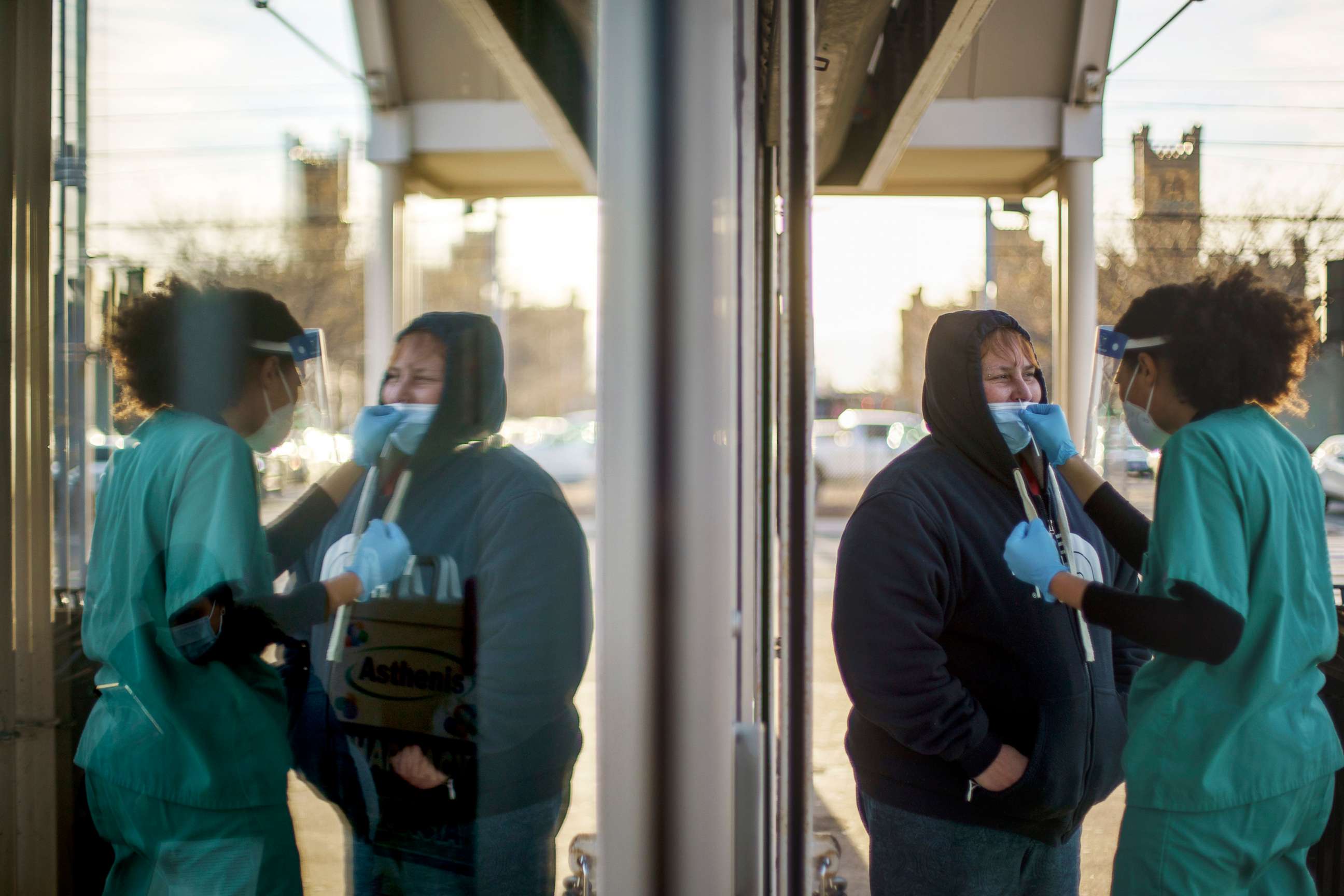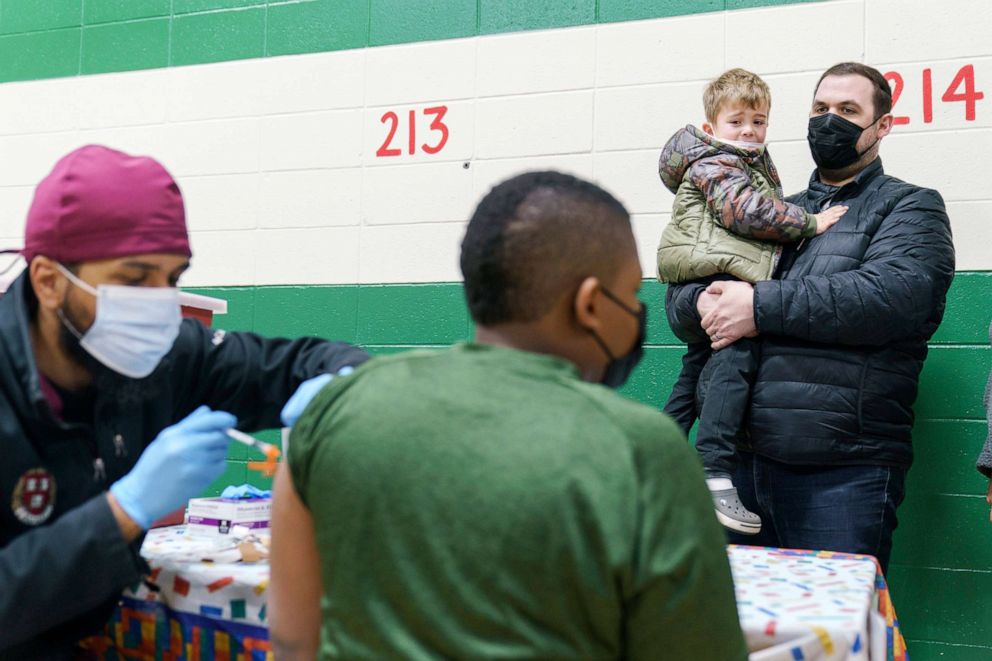'All options' on the table as Rhode Island sees rise in COVID-19 cases, hospitalizations
Hospitals continue to be strained by staffing shortages.
As COVID-19 cases and hospitalizations rise in Rhode Island, hospitals are strained by staffing shortages and testing turnaround times are delayed, Gov. Dan McKee is urging residents to "take these next six weeks seriously."
The state has one of the highest COVID-19 infection rates in the country, as the Northeast, including Massachusetts and Connecticut, have seen a surge in cases during colder weather.
Nearly 85% of all Rhode Islanders have gotten at least one dose of the COVID-19 vaccine, according to state data. That includes over 96% of adults. While breakthrough cases have steadily increased in recent weeks, the vast majority of new cases are in unvaccinated people, state data shows. Under 7% of all patients hospitalized for COVID-19 have been fully vaccinated, according to state data.

During a press briefing Thursday, Gov. McKee said the state is considering "all options," including reinstating an indoor mask mandate, amid the increase in infections, while calling on residents to get vaccinated and receive booster shots.
It's a message he repeated in a video addressed to Rhode Islanders Wednesday night.
"If we don't take these next six weeks seriously, we risk all the progress that we've made together," he said.
Officials expected an increase in cases as people gathered more indoors and after Thanksgiving, "but this is something that we need to watch," he said.
"I want to be clear -- all options remain on the table in terms of mitigation strategies, including reinstating an indoor mask," the governor added.
State leaders "strongly recommend" wearing a mask when in a crowded indoor public space.
Some hospitals and health leaders have voiced support of an indoor mask mandate, as COVID-19 cases and hospitalizations have reached their highest levels since January and February, respectively.
Hospitals statewide have also continued to see staffing shortages due to pandemic burnout, among other factors. McKee said Thursday he is exploring the idea of using FEMA and deploying the National Guard to provide support.
Cases in kids surge
The highest number of cases are in children ages 5 to 18, an age group that is also seeing its highest level of case rates since the pandemic started, the latest state data shows.
"We are seeing increases in COVID-19 cases among children," the Rhode Island Department of Health said on Facebook this week, while encouraging parents to get their children vaccinated against COVID-19. "Between Halloween and Thanksgiving, the case rate among children age 5 to 9 has doubled, and it has tripled among children age 10 to 14."
Dr. Allison Brindle, a general pediatrician at Hasbro Children's Hospital primary care clinic and the president of the Rhode Island chapter of the American Academy of Pediatrics, said she has also seen an increase in cases in the clinic since Halloween.
"We are seeing an uptick in cases in kids because everything is back," Brindle told ABC News. "We have tools in our toolkit, though, with our two main tools being vaccinations and masking with distancing in order to prevent illness."

Masks are currently required in the state's schools under an executive order.
Children tend to have milder cases of COVID-19. Though hospitalization and death are uncommon, more data on the pandemic's long-term impacts on children's mental and physical health is needed, according to the AAP. There is also added stress on families when there is a positive case, Brindle said.
"If your child is home from school, then parents are out of work," she said. "There's less access to the distance learning strategies than were in place before."
Addressing testing issues
In addition to masking and vaccination, staying home when sick and getting tested when you have symptoms will be key to limiting transmission, especially during the holidays, Brindle said.
Rhode Island has a "robust state infrastructure" for testing, especially for students, she noted. Though recently testing results have been delayed. Results of PCR tests taken at state-run sites are taking about 72 hours to process, instead of the usual 48-hour window, with some residents reporting even longer wait times.
McKee pointed to increased volume and prioritizing testing in school and nursing home outbreaks as causing delays for the general public.
The state's health department is exploring additional laboratory capacity and using private labs to help with turnaround times, McKee said Thursday.
"The bottom line is this: Testing turnaround times must get back to where they used to be, and I've directed our team to make this a priority," the governor said.




